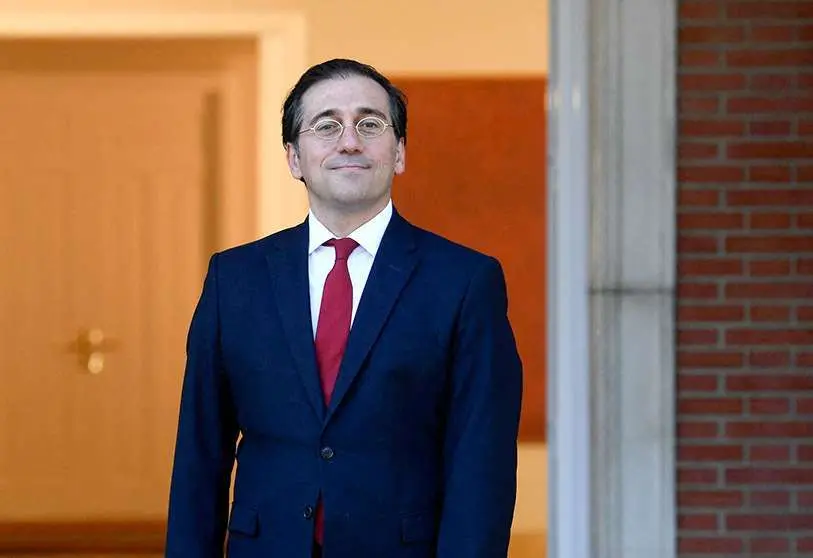Morocco and Algeria: tension on Spain's doorstep

Spain's foreign policy rentrée1 has been marked by ups and downs when it comes to the big stumbling block of the year: relations with Morocco.
Although the new foreign minister's efforts to improve relations through declarations citing Morocco's importance as a key partner for Spain have probably contributed to Rabat's openness to negotiating the High Level Meeting (HLM), Morocco sees in the new minister a willingness to change the cycle. It is also true that the judicialisation of the Ghali case could very likely act as a vector for the improvement or worsening of bilateral relations, since if it is not clarified how and by whom the Polisario Front leader entered Spain, it is very likely that Morocco will not try to improve relations because it will consider that Spain is being dishonest in hiding the reasons why Ghali entered our country. If this were to happen, Rabat might react by recalling its ambassador, which is likely to worsen relations.
Algeria's decision to break off relations with Morocco last month and their recent worsening with the closure of its airspace to Morocco has implications for Spain. Algeria is the Polisario's main supporter and it is almost certain that it contributed to the crisis with Morocco, as it was Algeria that asked Spain if Ghali could receive medical treatment in our territory, making Madrid a key partner for a country that faces a fragile political situation and needs diplomatic support to cope with the US backing for Morocco's position on Western Sahara. Moreover, the cessation of diplomatic relations has an energy component that is likely to make Spain's diplomatic game difficult: the cessation of relations means a cut in the flow of gas through the Great Maghreb Gas Pipeline, which runs through Morocco. Such a decision is not trivial because 29% of the gas we consume comes from Algeria, especially at the beginning of autumn and winter, the two seasons when this gas is most consumed, something that will most likely worsen the suffering of Spaniards - already oppressed by the high price of electricity consumption - if the crisis between Rabat and Algiers is not resolved.
Recent political changes in both countries are likely to play a role in whether or not bilateral relations with both countries are resolved. The victory of Aziz Akhannouch, a tycoon close to Morocco's king, in Moroccan elections this month may influence the improvement of relations with Spain, as he is a politician who enjoys good relations with Spain2. This will almost certainly facilitate a return to the trust that existed before the crisis began, something that a visit by either the foreign minister, the president or the King to Morocco is likely to reinforce, culminating in the postponed RAN where issues such as migration and counter-terrorism, key to the bilateral relationship, would be discussed, contributing to the improvement of relations with a key partner for Spain.
Finally, Bouteflika's death on the 17th of this month contributes to weakening an Algeria in an uncertain transition between military rule and popular democratic yearnings. His death will most likely reinforce the unwillingness to improve relations with Morocco, as this would be interpreted as a sign of the weakness of a regime fighting for its survival, using Morocco's tensions as a hypothetical vector of national unity in the face of an external enemy. Of course, this logic will most likely contribute to degrading relations between the two countries and hinder Spanish diplomacy, which will have to consider what to prioritise: energy supply or anti-terrorist and migratory security, since Morocco is our bulwark against irregular immigration from sub-Saharan Africa, something that Ceuta, Melilla and the Canary Islands are well aware of.
In conclusion, the resolution of relations between Spain and Morocco will be conditioned by the recent diplomatic rupture between Rabat and Algiers, as the gestures Madrid makes to each of the contenders could be seen by the other as an affront. The outcome of the prosecution of the Ghali case could make or break relations with Morocco, as Rabat will be watching to see if it becomes clear who authorised the Polisario leader's entry into Spain and how it was possible for him to do so. Closing the case will most likely worsen relations, with the potential for Morocco to repeat what it experienced in Ceuta and Melilla in May to express its displeasure. Algeria's decision to shut off the flow of gas through the Great Maghreb Gas Pipeline, which passes through Morocco, will influence Madrid's decisions, especially given that 29% of the gas we consume comes from Algiers. This is likely to force Spain to play a delicate game of pandering to both countries, with Western Sahara in between. This manoeuvre is almost certain to worsen relations, as a gesture of support for one of the contenders will be viewed with hostility by the other, resulting in a worsening of both countries' bilateral relations with Spain, with the dire energy and migration consequences that this will entail for Madrid.
References:
- French term for a return to routine.
- See. El amigo del rey de Marruecos que dobló el brazo a los islamistas, El País, April 2017. El amigo del rey de Marruecos que dobló el brazo a los islamistas (The friend of the King of Morocco who bent the arm of the Islamists), El País (elpais.com), April 2017.

